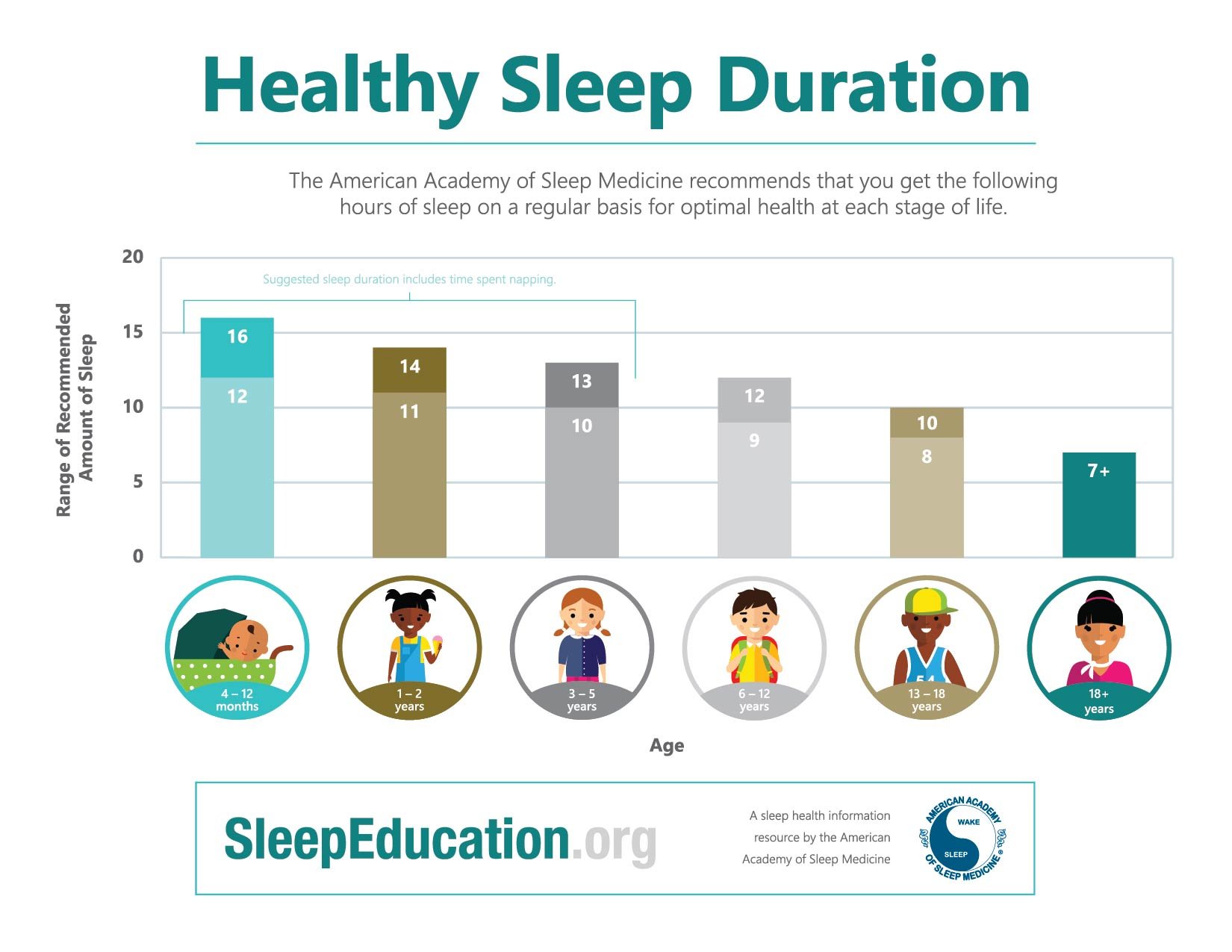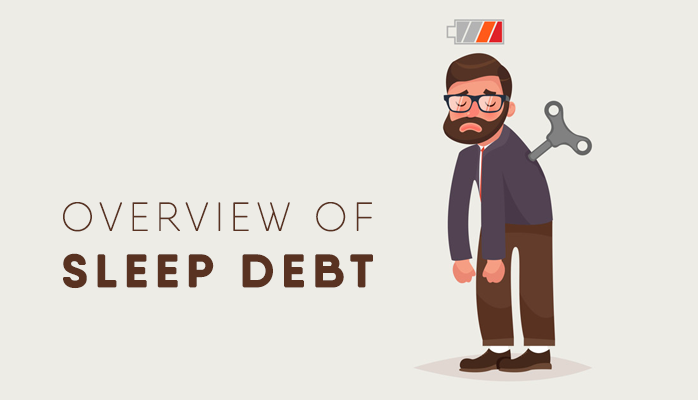What is Sleep Debt?
If you've ever heard of sleep debt, it’s the term that refers to how much less sleep you are getting than what you should be getting. The idea is that over time, a “sleep debt” forms that you need to get extra sleep to “pay back” your debt. In other words:
- Your body requires a certain about of sleep, which is different depending on your age
- As you get less sleep than required, you become sleep deprived
- This sleep deprivation causes a “debt” which you have to “pay” by sleeping more than the required amount
For example, if you should be sleeping 7 hours per night, and the last three nights you have slept 6 hours each night, then your “sleep debt” would be 3 hours. It’s important to understand sleep debts because they are more complex and nuanced than the above bullet points.
Even the term “sleep debt” is a bit misleading because you can’t “repay” a sleep debt like you repay a loan. Namely, you can’t just get a bunch of sleep one night and repay your sleep debt. It doesn’t work this way.
What are Symptoms You Have a Sleep Debt?
First and foremost, how do you know if you have a sleep debt? Unless you have been keeping a sleep journal and know how much you have bene sleeping each night, you might not immediately know if you have a sleep debt.
The best way to know is to answer one question: are you suffering from sleep deprivation?
Sleep deprivation causes lower performance in all aspects of life. Some common symptoms of sleep deprivation are:
- Chronic daytime fatigue or sleep attacks during the day
- Harder time managing stress and anxiety
- Chronic irritability that can interfere with relationships
- Less engagement in activities
- More brain fog and general apathy
- General malaise or depression
- Getting less exercise than normal due to fatigue
- Getting tired quicker during workouts
- Underperformance at work, school, etc.
- Lower sex drive
- Morning headaches
- Hard time losing weight
Chronic sleep deprivation can make you feel less like yourself, or “off.” This is a good indication that you are operating with a sleep debt. Over time, sleep deprivation can weigh on our emotional and physical vitality and lead to more serious consequences.
What Causes Sleep Debts?
Most obviously, not getting enough sleep causes a sleep debt. But usually there is a cause for not getting enough sleep. Usually, these causes are because of a sleep disorder or lifestyle factors – lifestyle factors are especially prevalent causes of sleep debts here in Alaska.
Some of the most common sleep disorders that generally result in chronic and sometimes severe sleep deprivation are:
Lifestyle factors that can lead to developing a sleep debt are:
- Extreme daytime lighting conditions (darkness in winter, light in summer)
- Shift work
- Too much coffee or alcohol before bed
- Stress from work, marriage, finances, etc.
Certain medical conditions and chronic pain can also pay an important role in developing sleep deprivation.
How Much Sleep Do We Need?

So how much sleep should you be getting? This depends on your age. Commonly expected ranges of sleep we need are [National Sleep Foundation]:
- <1 year: 12-16 hours per day (more sleep for newborns than toddlers)
- 1-2 years: 11-14 hours
- 3-5 years: 10-13 hours
- 6-13 hours: 9-12 hours
- 14-17 hours: 8-10 hours
- 18-65: 7-9 hours
- 65+: 7-8 hours
These are general guidelines – we are all individuals and may have daily sleep requirements that fall outside of the expected range.
How NOT to Repay a Sleep Debt (Binge Sleeping)
One of the problems with the term “sleep debt” is that it’s not a debt that you can simply repay in one lump sum, such as by binge sleeping for, say, 12 hours. Sleep studies show that getting one or two long nights of sleep does not remove the effects of sleep deprivation.
Here’s a common scenario.
- During the week you get less than the required amount of sleep
- You get up early for work or school, maybe only getting about five hours of sleep
- You’re not worried – you can “make up” this sleep on the weekend
- Then on the weekend, you sleep in an extra few hours each day - that should make you sleep better right?
Unfortunately, sleep binging does not work to repay a sleep debt. You cannot simply get a ton of sleep in a day or two and makeup for many days of not getting enough sleep.
You might feel good for the hours proceeding a long night of rest, but the effects of sleep deprivation will persist. And in fact, binge sleeping aka oversleeping, may actually make your fatigue symptoms worse.
How Do You Repay Your Sleep Debt?
So if binge sleeping doesn’t do the trick, how should you get rid of your sleep debt?
The actual way you repay your sleep debt is by establishing a healthy pattern of sleep over time. For example, if you have a week of under sleeping, the correct way to repay your debt is to:
- Get a little extra sleep on the weekend (say, around 9 hours each night) without oversleeping
- Get enough or a little bit of extra sleep every day the following week
Repaying sleep debt involves consistent, restful sleep until the effects of sleep deprivation are gone.
If you live in Alaska and deal with chronic sleep deprivation no matter how much sleep you seem to get, you should talk with a sleep specialist. Take this free online sleep test to get started.


